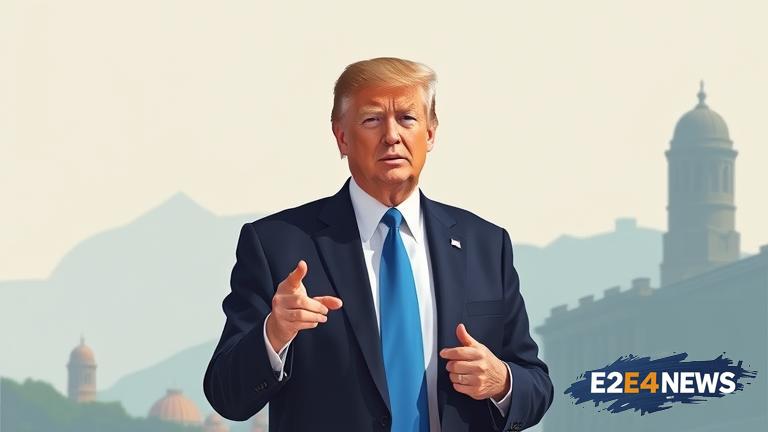The United States and Taiwan have a long-standing relationship, with the US providing military and economic support to the island nation. Recently, a US Senator announced plans to visit Taiwan, which could be seen as a significant development in the US-Taiwan relationship. The visit comes at a time when the Trump administration’s interest in Taiwan appears to be cooling. The Trump administration had initially shown a strong interest in Taiwan, with President Trump accepting a phone call from Taiwanese President Tsai Ing-wen in 2016, which was seen as a significant break from diplomatic protocol. However, since then, the administration’s focus on Taiwan has seemed to wane. The US Senator’s visit could be an attempt to rekindle the relationship and demonstrate US support for Taiwan. The visit is also likely to be seen as a challenge to China, which views Taiwan as a renegade province. China has been increasing its military presence in the region and has been applying pressure on Taiwan to accept its ‘one country, two systems’ framework. The US has been walking a fine line in its relations with Taiwan and China, seeking to maintain good relations with both nations while also upholding its commitment to Taiwan’s security. The US Senator’s visit will likely be closely watched by both China and Taiwan, as well as other nations in the region. The visit could also have implications for the US’s broader strategy in the Asia-Pacific region. The US has been seeking to strengthen its alliances and partnerships in the region, and the visit could be seen as part of this effort. Taiwan is a key player in the region, and the US’s relationship with the island nation is an important aspect of its overall strategy. The visit could also be seen as a way for the US to demonstrate its commitment to democracy and human rights in the region. Taiwan is a vibrant democracy, and the US has been a strong supporter of its democratic institutions. The visit will likely include meetings with Taiwanese officials, as well as visits to key military and economic sites. The US Senator will likely seek to reassure Taiwan of the US’s commitment to its security and to encourage greater cooperation between the two nations. The visit could also include discussions on trade and economic issues, as well as regional security concerns. The US and Taiwan have a strong trade relationship, and the visit could be an opportunity to discuss ways to strengthen this relationship. The visit will likely be seen as a positive development by Taiwan, which has been seeking to strengthen its relationships with other nations in the face of pressure from China. The visit could also be seen as a challenge to China’s growing influence in the region. China has been seeking to expand its military and economic presence in the region, and the US’s visit could be seen as a way to counter this influence. Overall, the US Senator’s visit to Taiwan is a significant development in the US-Taiwan relationship, and could have important implications for the region. The visit demonstrates the US’s commitment to Taiwan’s security and democracy, and could be seen as a way to strengthen the relationship between the two nations. The visit will likely be closely watched by China, Taiwan, and other nations in the region, and could have significant implications for the US’s broader strategy in the Asia-Pacific region.





